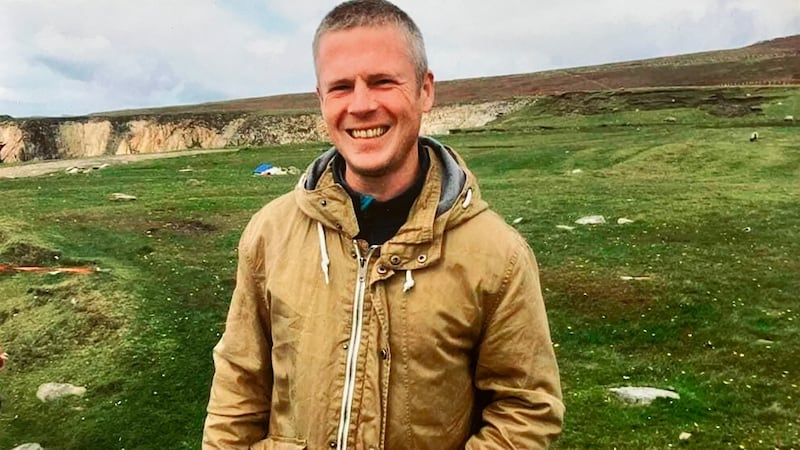In sport, there is no such thing as a tragedy.
Coming second in a game of sport is disappointing but car accidents, earthquakes, wars – these are tragedies. Although last Saturday’s loss to England was disappointing, those who are describing Ireland as losers have both life and rugby well out of perspective.
Learning how to develop the correct perspective on life through sport was one of the reasons the game was created.
Some theories from anthropologists suggest that our species succeeded in overcoming wild predatory animals by learning how to work together as a co-operative collective. When a single individual on the African savannah picked up a rock and threw it at a hungry lion, the outcome was another victory for the lions in Africa. When 30 rock-throwers tossed a continuous stream of rocks at that same lion, a team working together for the collective good, the series was levelled at one each.
READ MORE
The theory suggests that evolution created competitive emotions within us that required us to repeat this constant life and death struggle. Competitive emotions that still exist.
Learning to place these competitive emotions, the gloating winner and the dejected vanquished, into perspective was a major factor in the Rugby School forging those same principles learned on the savannah into a game that required those who played to find the courage to overcome the fear of physical danger, while giving their co-operation to the team to achieve success.
Perhaps the Rugby School’s greatest achievement was to frame all of this inside an ethos. A moral code of conduct, driven by the Corinthian spirit of sportsmanship. This ethos was woven into a culture aimed at teaching the players to control their emotions and stay, not just inside the game’s laws, but also to align with its spirit.
The code taught the winners to be humble and the vanquished to be complimentary, all reinforced inside carefully orchestrated theatre, such as the shaking of hands, as the defeated formed a tunnel of respect to applaud the winners from the field.

Ireland vs Scotland - Grudge match or rivalry?
Unwittingly, rugby’s greatest achievement was that when the physical battle was finished the game’s ethos was carried by the players into their changing rooms, clubhouses and out to their wider community.
Although some might argue that these are relics of a bygone era, others would suggest that society is in dire need of these timeless values. Politics, religion, culture, ethnicity and financial wealth were irrelevant. The only thing that matters was if you were good team-mate.

Last weekend the three Six Nations matches showcased all that is good about rugby. All six teams played with exceptional courage. Although there is an encyclopedia of reform required to the game’s laws and its governance, the players and coaches proved that with a positive mindset to run the ball and playing with the game’s ancient ethos in their hearts, rugby can still inspire communities.
Italy and England were the underdogs who overcame the odds and prevailed. Standing shoulder to shoulder, they tossed stones at the stronger lions. Those who have belittled England’s success with the small-minded view that Ireland were poor are allowing their competitiveness to lose touch with reality.
In fact, the opposite was in play. It was the quality of the Irish and Scottish teams that forced the English and the Italians to discover something previously unknown deep inside themselves. By the end of both matches, the players had realised, with glorious alchemy, that as a group they were far greater than they ever could have imagined.
Then there are the defeated. The Irish and Scots had their dreams dashed on the rocky truth that the scoreboard does not lie. As Sylvester Stallone wrote: “Nothing punches harder than life.”
Yet at full time, the game’s ethos was evident as Andy Farrell displayed his exceptional leadership in telling us that it would have been unjust if England had lost. He was quick to add some reality. Ireland still had the possibility of winning the Six Nations title. The term role model is overused, but that does not dilute its importance and Farrell walked the path for us all to follow.
Back-to-back Grand Slams are now as dead as those old lions that copped a stoning from our ancestors, but at the Aviva the possibility of lifting a trophy awaits.
For the begrudgers who somehow see a one-point defeat at Twickenham in the 81st minute with the possibility of still winning a championship as a train smash, here are some facts.
Since the origins of the championship in 1883 Ireland have picked up the much-unloved wooden spoon 25 times. The most of any nation, including Italy. With only 15 championship wins in 141 years, one more than the Scots, Ireland remain behind England (29), France (18) and Wales (28,) with an average of nine years and four months between winning drinks. So another championship is more than welcome.
If Ireland should win, they will be the only Irish team in 141 years to emulate the feat of the great Jackie Kyle, whose team won the Grand Slam in 1948 and then the championship the following season in 1949. Many in Ireland need to grasp the reality that winning a championship without a Grand Slam remains a highly significant achievement.
Last Saturday evening, the Scottish and Irish squads were sitting in their changing rooms devastated. Their dreams were shattered by what the rugby gods had inflicted on them.
Yet from the U8s up, we have learned through rugby about that essential and increasingly rare commodity – resilience. There was always another predatory lion to be confronted. Seven days after the pain of Twickenham and the Olympic Stadium, for both teams there is an opportunity for redemption.
Like it was on the savannah all those years ago, whoever wants it the most will win.















